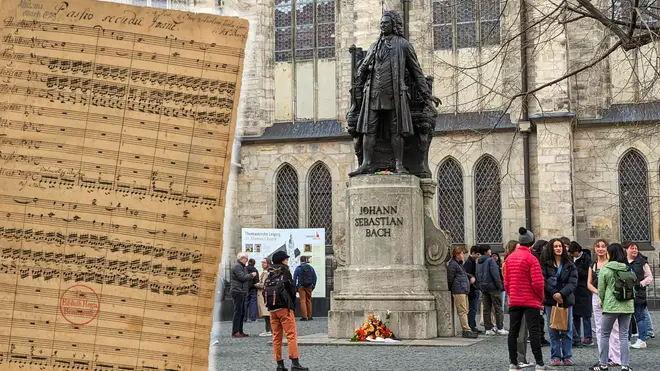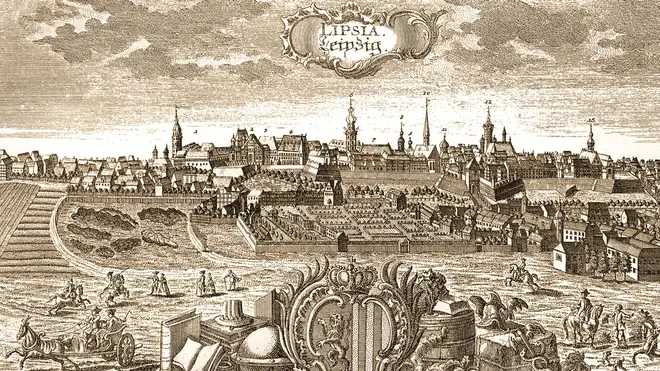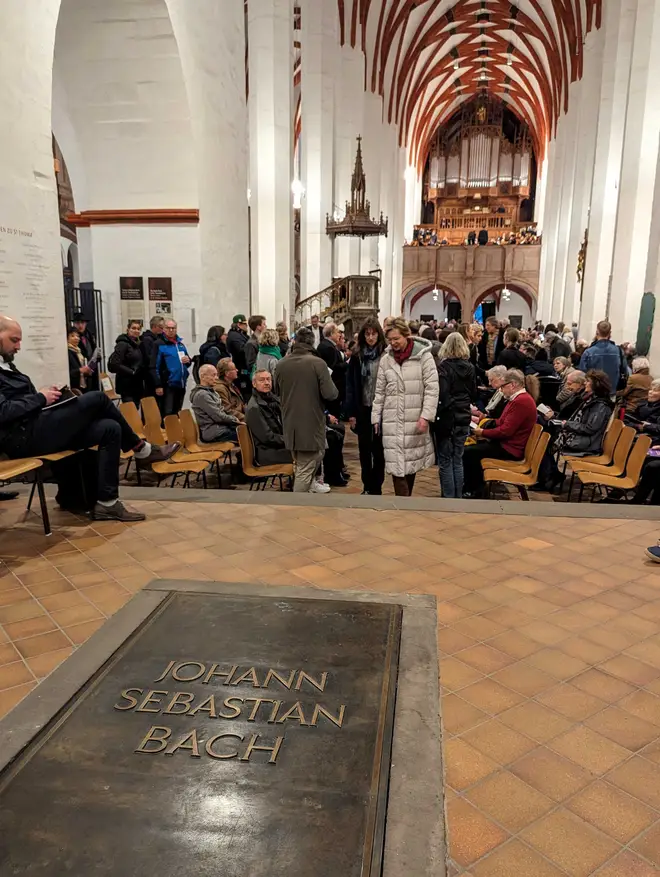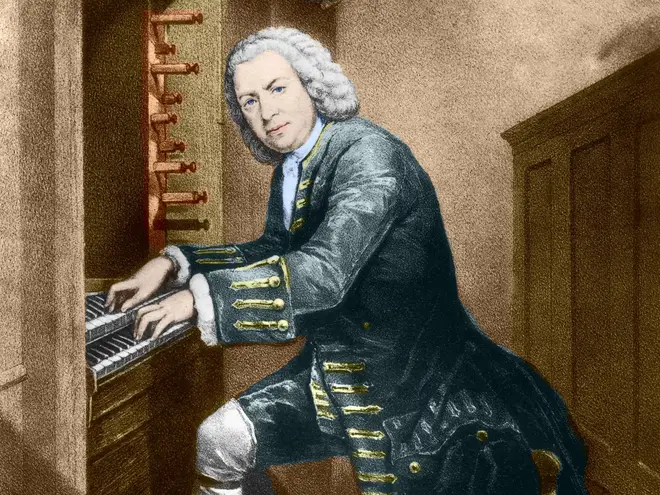On Air Now
Classic FM Breakfast with Aled Jones 6:30am - 9am
28 March 2024, 21:28 | Updated: 28 March 2024, 22:04

It’s the tricentenary of one of the great junctures in classical music history, and celebrations in Leipzig culminate this Good Friday for one of the greatest works ever written.
Leipzig will forever hold a special place for music lovers. It’s the birthplace of Clara Schumann, and she and her husband Robert lived there for several years. Felix and Fanny Mendelssohn and dozens of other composers are connected to the German city, and it is also home to one of the world’s great orchestras, the Leipzig Gewandhaus.
But most of all, it’s a city known as the spiritual home of Johann Sebastian Bach, and 2024 is a very significant anniversary year.
Just over 300 years ago, in June 1723, 38-year-old Bach was appointed musical director of the St Thomas Choir, meaning that he would head up music in the two churches of the thriving trading hub of Leipzig. The St Thomas choir, which was founded in 1212, was internationally renowned as one of the finest ensembles of the day.
The composer arrived from a royal palace in nearby Köthen, where his tenure as music director had ended in frustration around cuts to his musical resources. Now in a busy city, with many of Germany’s finest musicians at his disposal, Bach was eager to make his musical mark in the new post. What followed was an astonishing body of church, vocal and instrumental music.
Read more: 10 of Bach’s all-time best pieces of music

This means that 2023-4 sees not only a tricentennial of Bach’s arrival, but also the 300th anniversary of some of the great cantatas and large-scale works that were first heard in those Leipzig churches.
This Easter weekend, it’s the anniversary of one of his greatest and most beloved works, his St John Passion, which was heard for the very first time on Good Friday in 1724.
Many Bach lovers will descend on Leipzig this weekend for two very special performances to mark the occasion. The city’s famous orchestra, the Leipzig Gewandhaus is joined by Bach’s very own choir, the St Thomas Choir, and star soloists in special performances of the work.
From 1723 until the end of his life in 1750, Bach was director of music for two of the city’s main churches, the St Thomas Church and St Nicolas Church. The ornate St Nicolas Church was arguably the more prominent church at the time, but it’s in and around St Thomas’ where the composer would have spent most of time, in both work and life – he and his large family lived on the square beside the church.
In that square outside St Thomas’, there now stands a large statue of the great composer. It’s a place of pilgrimage for lovers of his music the world over.
Finding a new perspective on #Bach here in Leipzig 😉 pic.twitter.com/HHc9hLFoMu
— Yuja (@YujaWang) June 24, 2021
The Passion performances are part of wider 300th-anniversary celebrations in the city. There are more musical happenings in June with a special edition of the annual BachFest festival and a celebration of choral cantatas entitled ‘Bach – CHORal TOTAL’.

The St John Passion was the first of Bach’s two surviving passion oratorios. These expansive choral works tell the story of the last hours of Jesus’ life, as found in the Gospels of the New Testament.
The work begins with Jesus and his disciples on this fateful final night. The drama begins with the arrival of the guards, leading to his arrest, trial and eventual death at 3pm on Good Friday.
It’s scored for a Baroque orchestra of woodwind and strings, joined by a full choir, four soloists and an Evangelist, who sings throughout to narrate the story. To this quite traditional array of musicians, Bach adds some more unusual instruments. In 1720s Germany the viola d’amore and viola da gamba were already considered quite old-fashioned, but Bach brought them back for this work. The delicate, human-voice quality of these instruments is heard in some of the most intimate and emotional moments of the oratorio.

Bach’s St John Passion, directed by Barnaby Smith
The composer makes his passion so much more than simply a telling of this story. He makes the grand choruses moments of drama, the arias times of human reflection, with the chorales or hymns as a gathering together of all of us, the listeners.
Bach never wrote an opera – but this is the closest he ever got to it. Over two hours, the music moves through incredible drama, contrasts and tension. The brooding opening chorus ‘Herr, unser Herrscher, dessen Ruhm in allen Landen herrlich ist’ and ‘Kreuzige, kreuzige!’, or crucify chorus are held up as some of Bach’s most arresting choral writing.

For the 300th anniversary, performances of this great work will be happening all around the world, such is the popularity and scope of his music these days. But there will always be something extra special when it’s heard in the very buildings where Bach composed and directed it.
After Thursday night’s anniversary performance at St Thomas’, as is often customary for devotional works during Holy Week in Germany, there was no applause. Finishing at 9pm, almost on the dot, the only sound after the final chorale was the tolling of the church’s bell outside.
As people left in silence, many filed past Bach’s tomb at the east end of the church. Some knelt to touch or kiss his final resting place.
After 300 years, the awe surrounding the composer and this remarkable work lives as strongly as ever.